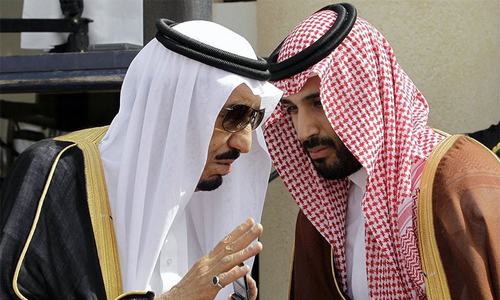Saudi Arabia should immediately investigate the claims that authorities physically mistreated or coerced prominent people detained in November 2017 and hold those responsible to account, Human Rights Watch (HRW) said on Wednesday in a statement on its website.
According to a New York Times report, published on Monday, prominent Saudis held in what Riyadh dubbed an anti-corruption campaign were subjected to coercion and physical abuse, describing fear and uncertainty even after their release.
The newspaper had revealed that at least 17 detainees were hospitalised after facing abuse, while a Saudi general later died in custody with what witnesses said appeared to be a broken neck.
Editorial: Saudi purge
Saudi officials did not immediately respond to a request for comment, but NYT quoted the government rejecting the abuse claims as “completely untrue”.
“The alleged mistreatment at the Ritz Carlton [where the detained people were held] is a serious blow to Mohammad bin Salman’s claims to be a modernising reformist,” said Sarah Leah Whitson, Middle East director at HRW, on Wednesday. “While MBS jaunts across Western capitals to gin up foreign investments, investors should think twice about the Saudis’ cavalier dismissal of the rule of law and fundamental rights.”
The detainees rounded up by Saudi forces included billionaire Prince Al-Waleed bin Talal, former National Guard chief Prince Miteb bin Abdullah, construction magnate Bakr bin Laden and media mogul Waleed al-Ibrahim of the regional MBC cable network.
Some of those held at Riyadh’s luxury Ritz-Carlton hotel were deprived of sleep, roughed up, interrogated with their heads covered and pressured to hand over large assets, the NYT report said, citing relatives and associates of detainees.
Read: Saudi Arabia recovers $107bn in corruption purge
Major General Ali al-Qahtani, a top aide to a son of the late King Abdullah, was among those held. He later died in custody, his corpse bearing signs of torture, according to witnesses quoted by the newspaper.
“It is great that the Saudi government wants to combat corruption, but its alleged tactics look more like extortion, and make a mockery of the rule of law,” Whitson adeed. “As the new government tries to sell its reformist credentials to the public, governments, and investors, they should take a hard, skeptical look at what actually happened in the Riyadh Ritz Carlton and its implications.”
At the time of the mass arrests, HRW had pointed out that the 'corruption purge' raised human rights concerns and it appeared to take place outside of any recognisable legal framework, with detainees forced to trade financial and business assets for their freedom.
Last week on Sunday, Saudi government announced that King Salman had ordered specialised anti-corruption units to be established in the public prosecutor’s office to “increase effectiveness” and accelerate the process of combating corruption.
The statement, however, did not offer any specific details on the operation of the units except that they will investigate and prosecute corruption cases.













































